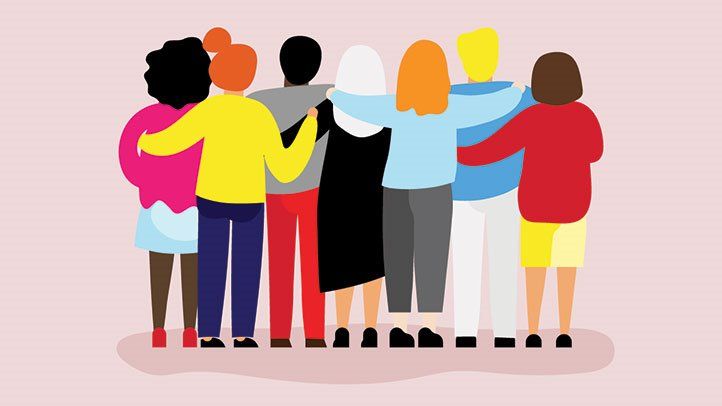SAMHSA (Substance Abuse Mental Health Services Administration) has developed a working definition and set of principles for recovery. Recovery is defined as: “A process of change through which individuals improve their health and wellness, live a self-directed life, and strive to reach their full potential.
Through recovery support programs and services, COSA-NCADD strives to not only enrich and enhance lives but save lives, reduce barriers to healthy choices and provide education and support to individuals with substance use disorders (SUDs), their families and the community as a whole.
COSA-NCADD’s Recovery Support Services Department serves people who have a history of alcohol and SUDs and who are in or seeking recovery, along with their family members and significant others.
Recovery from SUDs involves a process of change in which individuals improve their health and wellness, live a self-directed life and strive to reach their full potential. COSA-NCADD believes the following four major dimensions support a life of recovery:
Health: Overcoming or managing one’s disease(s) or symptoms – and make informed, healthy choices that support physical and emotional well-being
Home: Having a stable and safe place to live
Purpose: Participating in meaningful daily activities, such as a job, school, volunteer opportunities, family care taking or creative endeavors, and have the independence, income, and resources to participate in society
Community: Enjoying relationships and social networks that provide support, friendship, love, and hope
The Council on Substance Abuse recognizes the IOM model and utilizes it throughout our prevention and recovery practices. The Institute of Medicine (IOM) Classification System, often referred to as a continuum of services, care, or prevention, classifies prevention interventions according to their target population.
Classification by population provides clarity to differing objectives of various interventions and matches the objectives to the needs of the target population. The Council on Substance Abuse prevention and recovery departments work together to ensure that our communities are being served according to these strategies.
Peer Support

Peer Support
Peer Support
What is Peer Recovery Support?
Peer Recovery Support is the act of people who have had similar experiences with substance use disorders giving each other encouragement, hope, assistance, guidance and understanding, all which aids in recovery. It can be done anytime or anywhere when two or more peers are in a mutual, supportive relationship.
What are Peer Recovery Support Services?
As the words imply, Peer Recovery Support Services are designed and delivered by people who have experienced both a substance use disorder and recovery. These services include:
- Range of non-clinical services to facilitate the process of recovery and holistic wellness
- Potential of assistance being provided prior to, during, or after treatment to an individual and/or a family member of an individual with a substance use disorder
- The ability to provide services in an individual or group setting
- Having a certified Recovery Support Specialist on site to assist with services
- Capitalizing on the desire among many in recovery to give back to their communities by providing services to others as volunteers
Characteristics of Peer Recovery Support Services:
- Building an individual’s resilience and capacities rather than providing services focused primarily on correcting their deficits, disabilities, or problems
- Placing an emphasis on uncovering, reaffirming and enhancing the abilities, interests, knowledge, resources, aspirations and hopes of individuals, families, groups and communities
- Acknowledging that there are multiple pathways to recovery
- Self-directed care
- Encouraging advocacy
- Promoting wellness principles and self-care
Peer Recovery Support Specialist at COSA-NCADD
Since 2010, COSA-NCADD has utilized Peer Recovery Support Specialist to provide services to individuals in recovery. Currently, Specialists are conducting new client in-takes, completing community referrals, facilitating group meetings, conducting training and implementing prevention and recovery programs.
Certified Recovery Support Specialist
In Alabama, a Certified Recovery Support Specialist is a person in recovery from an SUD, who has been trained to use their personal recovery story to assist others in developing their personal plan for recovery. This person must meet the Alabama Department of Mental Health’s requirements to provide peer supportive services.
